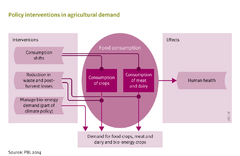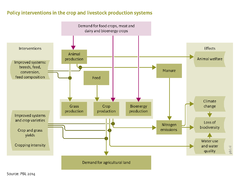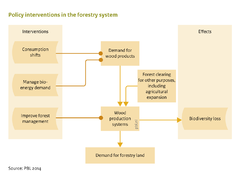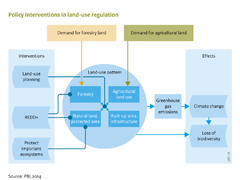Land and biodiversity policies: Difference between revisions
Jump to navigation
Jump to search
No edit summary |
No edit summary |
||
| Line 16: | Line 16: | ||
This section primarily focuses on the impacts on biodiversity, climate change, water and nutrient balances. However, it is worth noting that some policy interventions also have implications for other policy domains not elaborated here, such as human health and animal welfare. | This section primarily focuses on the impacts on biodiversity, climate change, water and nutrient balances. However, it is worth noting that some policy interventions also have implications for other policy domains not elaborated here, such as human health and animal welfare. | ||
<gallery> | |||
{{#ask:[[Flowchart LBP]] | |||
|mainlabel=page | |||
|?HasPageName=figure | |||
|?HasCaption=caption | |||
|?HasAltTitle=alt | |||
|format=template | |||
|link=none | |||
|template=ViewFlowchartPRTemplate | |||
}} | |||
</gallery> | |||
|alt=Flowchart number four of policies for land and biodiversity | |alt=Flowchart number four of policies for land and biodiversity | ||
</gallery> | </gallery> | ||
Revision as of 21:51, 17 January 2014
| Relevant overviews |
Key policy issues
- How can land-use policies contribute to strategies for halting biodiversity loss and reducing greenhouse gas emissions?
- How can changes in consumption patterns contribute to achieving sustainability goals through changes in land use?
- What are the synergies and trade-offs between halting biodiversity loss, food security, reducing nutrient emissions, and reducing water stress?
Introduction



